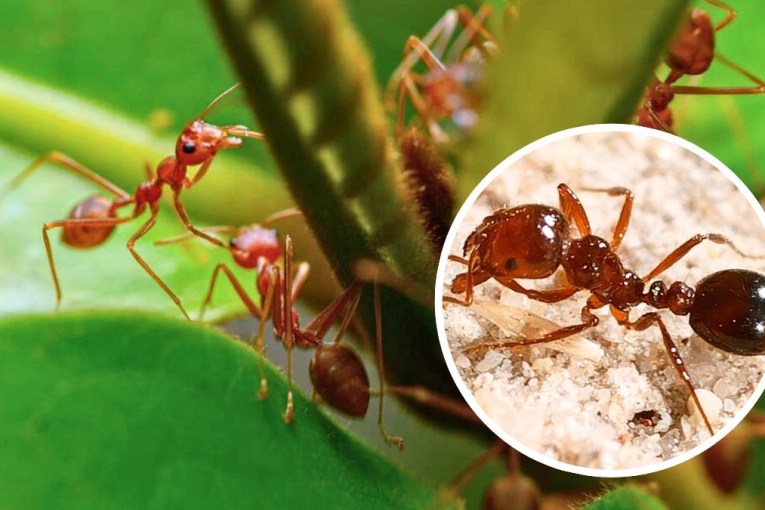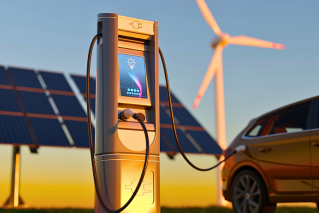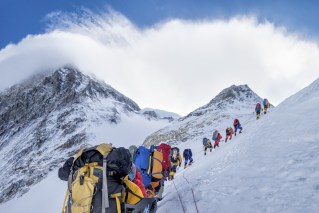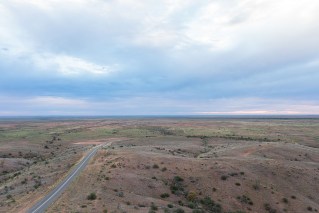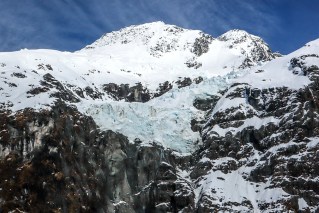Road to net zero: What the rest of the world thinks about Australia’s climate policy

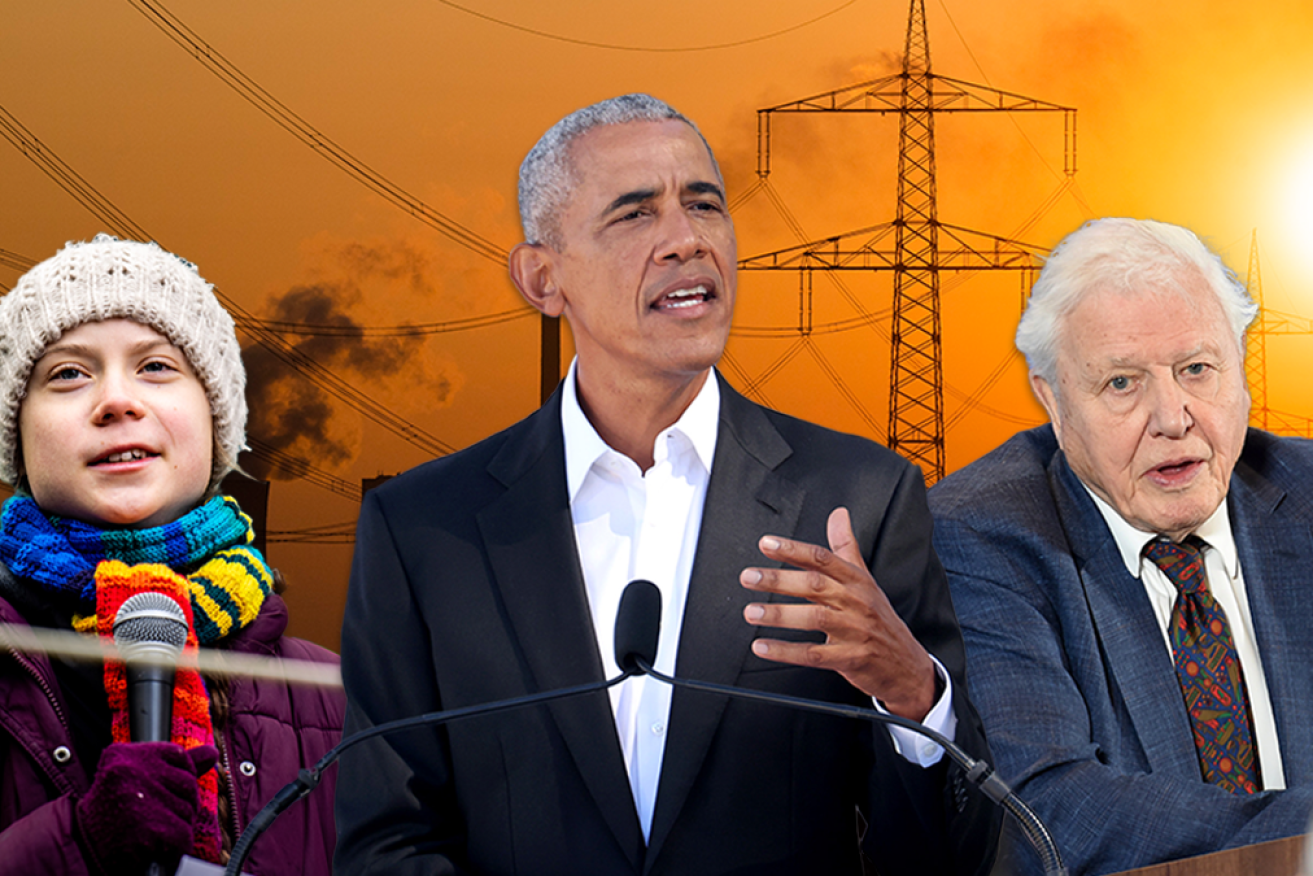
Leaders around the world have slammed Australia's stance on climate change. Photo: TND
Australia is becoming a pariah on the world stage when it comes to climate policy.
From initially refusing to ratify the Kyoto Protocol, to remaining dependent on coal, successive Australian governments have repeatedly adopted policies that put them at odds with their foreign counterparts.
Ahead of the COP26 climate summit in Glasgow, here’s what world leaders and environmentalists have said about Australia’s climate change track record.

Sir David Attenborough has blasted Australia over its continued use of fossil fuels. Photo: Getty
Sir David Attenborough
British environmentalist and documentary filmmaker Sir David Attenborough has repeatedly slammed Australia’s climate policy in recent years, including on Triple J Hack in 2019.
You are the keepers of an extraordinary section of the surface of this planet, including the Barrier Reef, and what you say, what you do, really, really matters.”
Sir David Attenborough
“And then you suddenly say, ‘No it doesn’t matter … it doesn’t matter how much coal we burn … we don’t give a damn what it does to the rest of the world’.”
During the January 2020 bushfires, Sir David told the BBC it was “palpable nonsense” for Australian politicians to deny the link between the fires and climate change.

Fijian Prime Minister Frank Bainimarama has called on Australia to take more responsibility on climate change. Photo: Getty
Pacific leaders
The Pacific islands are already experiencing the effects of rising sea levels, extreme weather events and collapsing ecosystems due to climate change.
Fijian Prime Minister Frank Bainimarama has often referred to the relationship between Australia and Pacific nations as like a family, with all countries needing to support one another.
In a 2020 interview with The Sydney Morning Herald and The Age, Mr Bainimarama singled out Australia alongside the US and China as “major players” who need to make stronger climate commitments.
To anyone who may think that Australia is too small to make a real difference, there are a number of small island states in your backyard that beg to differ.”
Fijian Prime Minister Frank Bainimarama
Statesmen from some of the most-at risk countries in the region have also repeatedly called out Australia.
In 2019, former Tuvaluan prime minister Enele Sopoaga accused Scott Morrison of denying the effects of climate change in the Pacific.
“There is no point in making declarations after declarations every annual summit we meet and yet we are dragging our feet on that and I continue to call on my friend, Prime Minister Morrison of Australia, to do the right thing,” Mr Sopoaga later said at the Virtual Island Summit 2020.
In a 2018 opinion piece, former president of Kiribati Anote Tong accused Australia of “failing in its duty as a regional leader”.
Mr Tong has also referred to China as “the lesser of two evils” compared to Australia when it comes to providing assistance in the fight against climate change.

Greta Thunberg has slammed many countries – including Australia – for a lack of climate change urgency. Photo: Getty
Greta Thunberg
During the catastrophic bushfire season of 2019-2020, climate activists around the world sounded the alarm.
Among the most prominent voices was Swedish School Strike for Climate organiser Greta Thunberg, who was just 16 years old at the time.
Not even catastrophes like these seem to bring any political action. How is this possible?”
Greta Thunberg
“All of this still has not resulted in any political action. Because we still fail to make the connection between the climate crisis and increased extreme weather events and nature disasters like the #AustraliaFires,” she wrote on Facebook in January 2020.
More recently, the student has taken aim at world leaders in general.
“Build back better. Blah, blah, blah. Green economy. Blah blah blah. Net zero by 2050. Blah, blah, blah,” she said at the Youth4Climate summit in Milan last month.
“This is all we hear from our so-called leaders. Words that sound great but so far have not led to action.”

Selwin Hart is a United Nations Assistant Secretary-General and Special Adviser to the Secretary-General on Climate Action. Photo: Getty
The United Nations
UN Secretary-General António Guterres has called on rich countries to phase out coal by 2030.
Selwin Hart, Special Adviser to the Secretary-General on Climate Action, went as far as to single out Australia during a speech at the Australian National University this year.
If the world does not rapidly phase out coal, climate change will wreak havoc right across the Australian economy: From agriculture to tourism, and right across the services sector.”
Selwin Hart, Special Adviser to the UN Secretary-General on Climate Action
“Similarly, construction, housing and the property sector, in a country where the vast majority live on or near a coastline. It will be even more catastrophic in your neighbourhood,” Mr Hart added.
Meanwhile, a 2015 report from the Africa Progress Panel led by former UN Secretary-General Kofi Annan slammed Australia’s lack of climate progress.
“With one of the world’s highest levels of per capita emissions, Australia has gone from leadership to free-rider status in climate diplomacy,” it said.

Former French environment minister Laurence Tubiana is one of the key architects of the Paris Agreement. Photo: Getty
The architect of the Paris Agreement
Laurence Tubiana is a former French environment minister and current head of the European Climate Foundation.
She was one of the main architects of the Paris Agreement, and singled out Australia in 2019 for wanting to carry over old credits from previous climate goals, some of which were acquired under more lax standards.
“If you want this carry over, it is just cheating,” Ms Tubiana told the Financial Times.
Australia was willing in a way to destroy the whole system, because that is the way to destroy the whole Paris agreement.”
Laurence Tubiana, key architect of the Paris Agreement
In an opinion piece from December, Ms Tubiana put Australia’s climate inaction in perspective.
“To the rest of the world, Australia’s national-level inaction, based largely on the claim that climate is a left-right political issue, is bizarre,” she wrote.
“The world needs Australia to re-engage on climate, and Australia is better placed than most to thrive as the fifth industrial revolution kicks in.
“Or as a famous 2006 Australian advertisement said, where the bloody hell are you?”

Barack Obama mentioned Australia by name while talking about climate action. Photo: Getty
Barack Obama
During a 2014 speech at the University of Queensland, then-US President Barack Obama made the rare move of pointing out the real risks of climate change in Australia.
Here in the Asia-Pacific nobody has more at stake when it comes to thinking about and then acting on climate change.”
Barack Obama
“Here a climate that increases in temperature will mean more extreme and frequent storms, more flooding, rising seas that submerge Pacific islands.
“Here in Australia it means longer droughts, more wildfires. The incredible natural glory of the Great Barrier Reef is threatened.”
Mr Obama also urged countries like Australia to break free of the “false choice between development and pollution”.
The Sydney Morning Herald later reported that parts of this passage were ad-libbed out of frustration over then-prime minister Tony Abbott’s climate change denial.
Fast-forward to 2021 and the Biden administration has slammed Australia’s emissions trajectory as being “insufficient”.
The OECD
The Organisation for Economic Co-operation and Development is an organisation comprising of 38 countries, including Australia.
It’s not known for diehard environmentalism, but it has nevertheless criticised Australia’s climate change policies over the years.
“The least-cost approach to meeting these emission targets would involve an economy-wide carbon price,” the organisation said in a report in September.
“However, if the political environment precludes such an approach, other existing instruments will need to be scaled up and new sector-based solutions considered.”
Innovations are less likely to be environment-related in Australia than in other OECD countries.”
The OECD
The OECD also called for the government to support the uptake of electric cars, and to ensure a just transition for Australia’s 40,000 coal industry workers.
Other articles in this series include an analysis of the political challenges facing Scott Morrison, and a breakdown of the financial costs of climate inaction.
